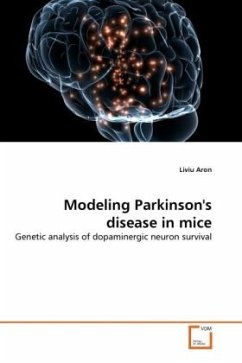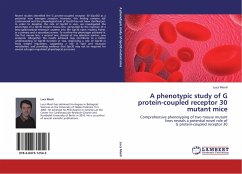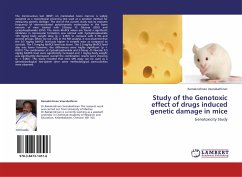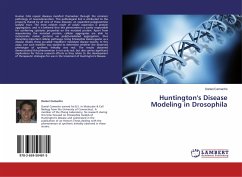
Modeling Parkinson's disease in mice
Genetic analysis of dopaminergic neuron survival
Versandkostenfrei!
Versandfertig in 6-10 Tagen
52,99 €
inkl. MwSt.

PAYBACK Punkte
26 °P sammeln!
More than five million people worldwide are afflicted with Parkinson's disease (PD), an incurable movement disorder caused by the death of dopamine-producing (DA) neurons in the brain. The neurotrophic factor GDNF is a promising therapeutic candidate in PD, but the mechanisms of its physiological and pharmacological actions in DA neurons are poorly understood. The present work shows that mice in which GDNF signaling has been genetically impaired exhibit a progressive loss of DA neurons. When these mice are crossed to mice lacking DJ-1, a gene mutated in early-onset PD, the loss of DA neurons i...
More than five million people worldwide are afflicted with Parkinson's disease (PD), an incurable movement disorder caused by the death of dopamine-producing (DA) neurons in the brain. The neurotrophic factor GDNF is a promising therapeutic candidate in PD, but the mechanisms of its physiological and pharmacological actions in DA neurons are poorly understood. The present work shows that mice in which GDNF signaling has been genetically impaired exhibit a progressive loss of DA neurons. When these mice are crossed to mice lacking DJ-1, a gene mutated in early-onset PD, the loss of DA neurons is further enhanced. GDNF signaling is connected molecularly to DJ-1, as revealed by genetic experiments in the fruitfly Drosophila. Thus, mice with impaired GDNF and DJ-1 function offer new insights into the regulation of DA neuron survival and can be used to model aspects of PD. Understanding the molecular underpinnings of GDNF action in DA neurons will facilitate the development of new therapies to fight PD. The reader interested in neurodegenerative disorders, their mechanisms and therapies, or in modern genetic tools to model human disease may find this book useful.












